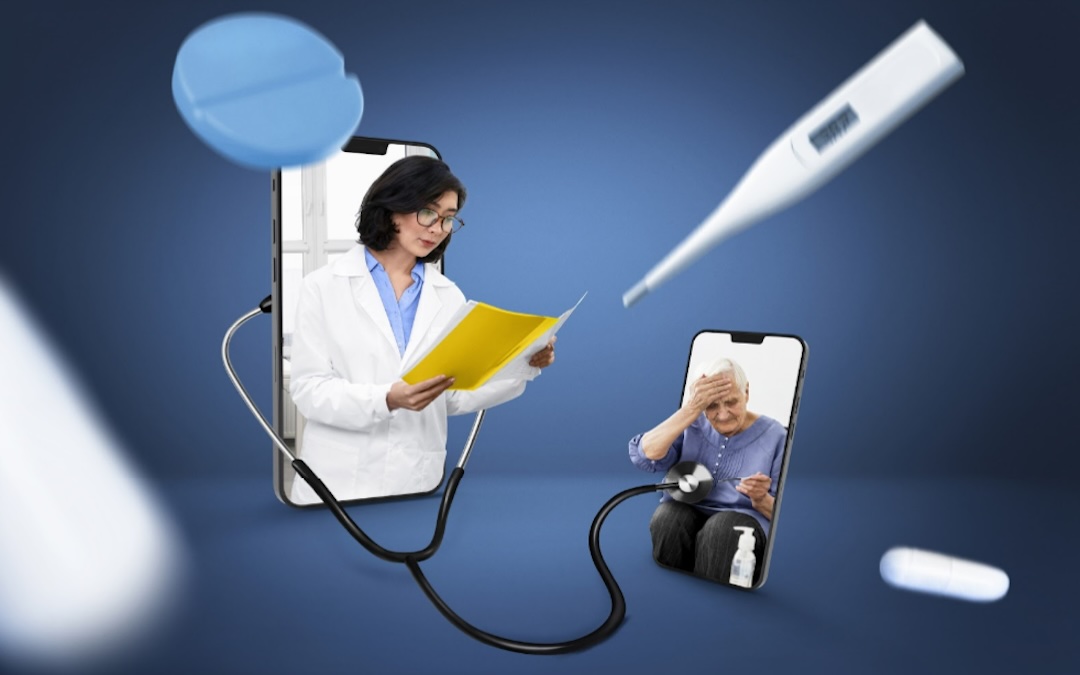
The digital revolution is reshaping healthcare, making patient care more efficient, accessible, and personalized. From telemedicine and wearable devices to AI-powered diagnostics and remote monitoring, technology is redefining how healthcare services are delivered and experienced.
The Need for Digital Transformation in Healthcare
Today’s healthcare systems face increasing demands for better outcomes, faster service delivery, and improved patient engagement. Traditional processes can no longer keep pace with modern expectations. Innovative technologies help address these challenges by improving efficiency, streamlining workflows, and enabling proactive care.
- Enhancing Patient Engagement: Patients now have easier access to their medical records, personalized health insights, and communication tools to interact with healthcare professionals anytime, anywhere.
- Expanding Access to Care: Telemedicine and virtual consultations bridge geographic barriers, bringing medical expertise to remote and underserved populations.
- Streamlining Healthcare Operations: Automation in appointment scheduling, patient records, and administrative tasks reduces errors and improves care coordination.
- Protecting Patient Data: Technologies now integrate robust security measures to ensure compliance with privacy regulations such as HIPAA and GDPR.
- Leveraging Emerging Technologies: Artificial intelligence, wearable IoT devices, and blockchain are transforming diagnostics, real-time monitoring, and data sharing.
Key Technology-Driven Features Enhancing Patient Care
Healthcare app development plays a critical role in delivering tools that cater to patients, doctors, and administrative staff. A well-designed healthcare app must offer intuitive features that support medical workflows, improve communication, and enhance the overall patient experience. Some of the essential features include:
1. Centralized Medical Records
Secure digital storage of patient records—including medical histories, prescriptions, lab results, and treatment plans—enables seamless access and better coordination across healthcare providers.
2. Telemedicine and Virtual Consultations
Video consultations, remote monitoring, and chat services allow patients to connect with doctors from the comfort of their homes—saving time and minimizing exposure risks.
3. Smart Appointment Scheduling
Digital scheduling tools help patients book appointments, receive reminders, and reduce no-shows—improving efficiency for both providers and patients.
4. Medication and Prescription Management
Automated reminders, digital prescriptions, and pharmacy integrations help patients manage medications effectively and reduce the risk of missed doses.
5. AI-Powered Support and Assistance
Chatbots and virtual assistants offer 24/7 responses to common questions, assist in triage, and guide patients to appropriate care paths.
6. Wearables and Remote Health Monitoring
Wearable devices track vital signs such as heart rate, glucose levels, and blood pressure. This real-time data helps doctors monitor chronic conditions and intervene early when needed.
7. Digital Billing and Payment Systems
Secure online billing and insurance claim processing simplify payment for patients and streamline financial operations for healthcare institutions.
Benefits of Healthcare Technology for Stakeholders
As healthcare continues to embrace digital transformation, both patients and providers are reaping the rewards. Technology not only enhances the quality of care but also improves communication, streamlines operations, and ensures more personalized and efficient treatment experiences. Below are some of the key benefits that modern healthcare technologies offer to stakeholders across the care ecosystem—from patients seeking better outcomes to providers aiming for operational excellence.
For Patients:
- Personalized treatment and self-care guidance
- Greater access to care regardless of location
- Improved communication with healthcare providers
- Faster diagnosis and more accurate results
- Enhanced safety of medical data
For Healthcare Providers:
- Streamlined administrative processes
- Improved diagnostic and treatment accuracy through data analytics
- Remote monitoring and timely intervention
- Stronger patient engagement and satisfaction
- Better resource allocation and workflow efficiency
Emerging Trends Shaping the Future of Healthcare
1. AI-Driven Diagnostics
AI tools are improving diagnostic accuracy by analyzing medical images, lab results, and patient data to detect diseases earlier and recommend personalized treatments.
2. Blockchain for Secure Data Exchange
Blockchain technology is enhancing data transparency and enabling secure sharing of patient information between clinics, hospitals, and labs.
3. AR for Medical Training and Procedures
Augmented reality provides immersive training simulations and assists surgeons during complex procedures by overlaying critical data in real-time.
4. 5G-Powered Telehealth
Faster internet speeds and lower latency through 5G networks are making telemedicine more responsive, reliable, and widespread.
5. Personalized Medicine with Big Data
By analyzing genetic, environmental, and lifestyle data, healthcare providers can now tailor treatments to individual patient profiles, improving outcomes and minimizing side effects.
Conclusion
Technology is transforming healthcare from a reactive system into a proactive, patient-centered experience. From AI-enhanced diagnostics to wearable-driven monitoring, these innovations empower patients and providers alike. As healthcare continues to evolve, embracing digital solutions will be key to improving accessibility, efficiency, and quality of care across the globe.
Share this post
Leave a comment
All comments are moderated. Spammy and bot submitted comments are deleted. Please submit the comments that are helpful to others, and we'll approve your comments. A comment that includes outbound link will only be approved if the content is relevant to the topic, and has some value to our readers.

Comments (0)
No comment